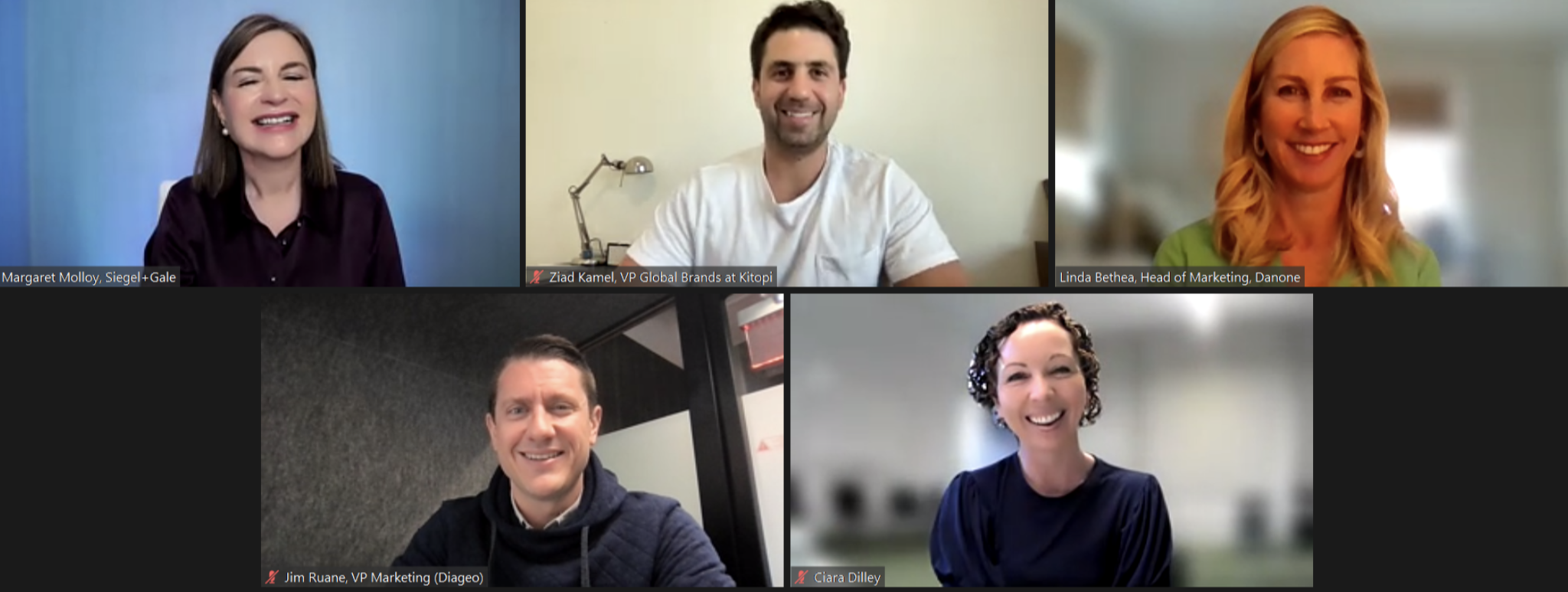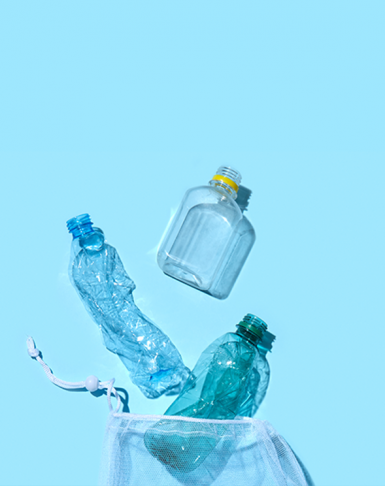Ahead of Earth Day 2022, I hosted a panel for The Marketing Society about driving the future of sustainability featuring four global marketing leaders from the food and beverage industry.
Increasingly, today’s shoppers have a greater desire to do good, and they are paying close attention to the environmental impact of their purchases when picking a brand. In fact, research reveals that almost half of consumers believe that their food choices have an impact on the environment.
The pressure for companies to step up their sustainability efforts is critical, and nowhere is this more apparent than in the food and beverage space. Throughout our discussion, our four experts shared examples of initiatives they are launching and lessons they are learning. We explored the importance of investing in the future, from sustainable product sourcing, cutting waste and improving packaging to expanding product ranges and the importance of collaboration of all key stakeholders. We also examined challenges surrounding sustainability, the merits and effectiveness of positive storytelling and how marketers can connect with the next generation of informed consumers. Given that food and beverage brands are at the forefront of sustainability, these insights can undoubtedly apply to all marketers.
In closing, I asked our panelists, “What is your brand’s commitment to sustainability, and how do you measure success at your brand?” Here’s what they had to say.

With a portfolio of over twenty brands, they have many different commitments but all in the service of achieving Danone’s vision of One Planet. One Health—which reflects a belief that the health of people and the health of the planet are interconnected. We are continuing to advance our journey of leveraging business as a force for good. We committed to becoming a Certified B Corp by 2020 and achieved our goal in April 2018. Danone North America is now the largest Certified B Corp in the world. We have also committed to cutting food waste in half by 2030 by partnering with food rescue groups like City Harvest and We Don’t Waste. And last year, we announced a new partnership with Rothy’s brand to repurpose evian water bottles collected at the 2021 US Open Tennis Tournament into a limited-edition, tennis-inspired capsule collection. The first-of-its-kind capsule collection will debut in September 2022.
In terms of measurement, we have very specific KPIs in place at both the corporate level to measure corporate commitments as well as at the brand level to measure commitments such as becoming carbon positive on Horizon Organic by 2025 or becoming 100% recycled plastic at evian by 2030. We have those KPIs in place and measure them regularly and track our sustainability journey.
—Linda Bethea, Head of Marketing, Danone
We have a fantastic corporate program called pep+ (PepsiCo Positive) that enables all and drives all that we do in all of our work, and our goals are embedded in pep+. This includes sourcing ingredients and making and selling its products in a more sustainable way to leveraging our connections with consumers each day to take sustainability mainstream and engage people to make better choices for themselves and the planet. That trickles down then to the brands. For example, one of our packaging innovations is around Off The Eaten Path, our plant-based veggie snack. We have now launched the first industrially compostable snack bag in the United States. That was a massive step for us because we know if we can do this as the largest snack company in the country, if not the world, we can bring others with us. We can start to make this material commercially viable for more companies. It’s a powerful story on the brand side.
We track our commitments from a corporate perspective but also from a brand and consumer perspective. Do our consumers feel good about this? Do they feel we’re doing enough? And does it make them feel closer to our brands?
—Ciara Dilley, Vice President, Better Choice Snacking brands, FLNA, PepsiCo
Going back to the notion of total business effort and making real progress against Diageo’s grain to glass sustainability action plan requires accountability across all functions from supply to demand, so similarly, we require every role to embrace this brand activist mentality: willing to take action, passion, creative flair, and rigor going beyond what’s conventional.
Preserving water is one of the critical pillars of our grain to glass sustainability platform. As such, we’re committed to preserving and replenishing water everywhere we operate. Our targets are to ensure that every drink we produce by 2030 will take 30% less water to make than it does today and achieve a net positive water impact in our key water-stressed basins and communities. Additionally, we are working toward a low carbon future, reducing emissions and putting biodiversity back into the environment.
Quite simply, Diageo measures success by measuring whether we have done what we have said we would do. Our success lies in our commitments to the world and the investor community; we’re tracking against 25 distinct commitments through 2030.
—Jim Ruane, Vice President, Reserve Vodkas, Diageo
Kitopi started as a tech-powered cloud kitchen company. We were solving the problem of on-demand food delivery, and we grew incredibly fast in the region. With the pandemic, however, we saw a shift in consumer behavior, from going out to ordering in, which added rocket fuel to our growth and presented many new opportunities. The most significant impact we’ve made is on the packaging. The shift to restaurant delivery means instead of diners eating on a ceramic plate, suddenly consumers want on-demand food. We’ve seen a massive improvement in the supply chain and moving away from plastic containers to sustainable, biodegradable, reusable or recyclable packaging containers. And we’ve taken steps to ensure the consumer experience isn’t negatively affected while still ensuring our sustainability metrics are kept. Small decisions can have massive impacts, such as working with our delivery partners to avoid making it a default to deliver cutlery with every food order. We made a commitment a few years back, and now, 50% of our packaging is either recyclable or biodegradable. We continue to progress and innovate with our suppliers on that front. An extremely measurable and simple metric that we are measuring and which we are targeting is to be 100% packaging sustainable by 2024.
—Ziad Kamel, Vice President Global Brands, Kitopi and Co- Founder, Cloud Restaurants
Margaret Molloy is Global CMO and hosts of How CMOs Commit.




